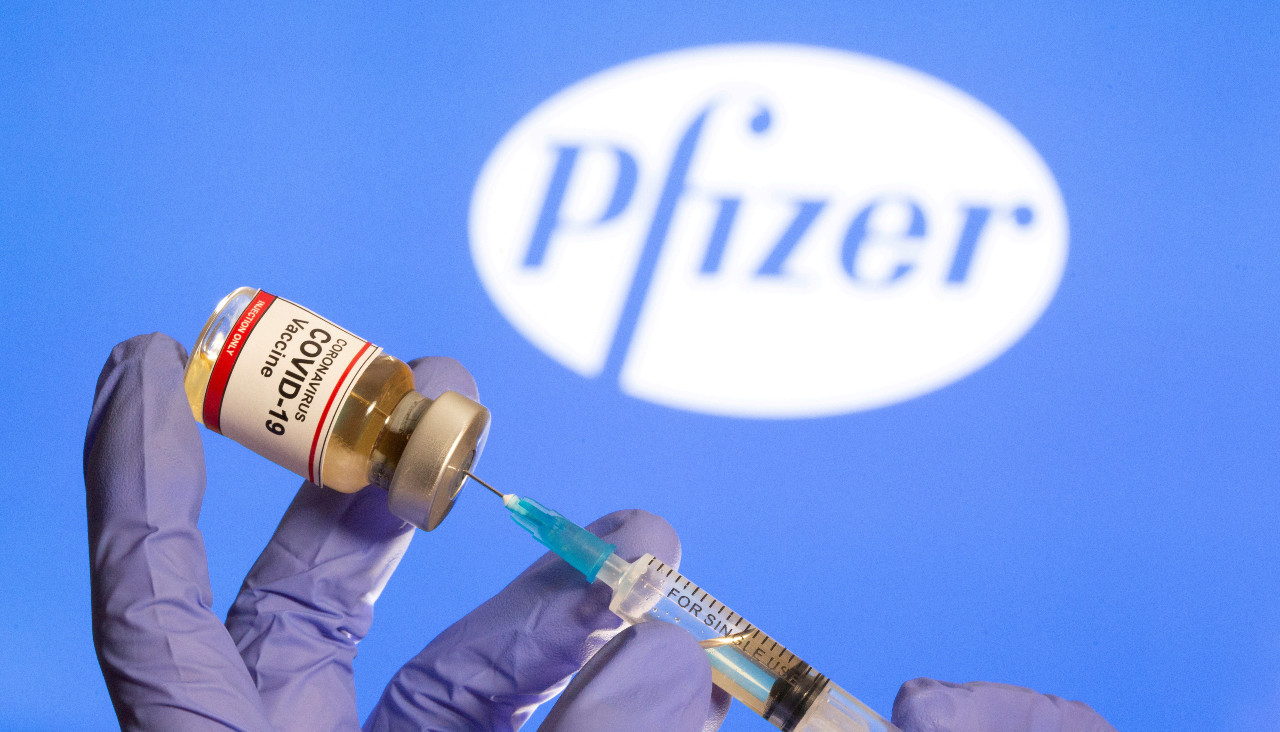Popular Reads
Top Results
Can't find what you're looking for?
View all search resultsPopular Reads
Top Results
Can't find what you're looking for?
View all search resultsWhy Pfizer’s ultra-cold COVID-19 vaccine will not be at the local pharmacy any time soon
But the vaccine's complex and super-cold storage requirements are an obstacle for even the most sophisticated hospitals in the United States and may impact when and where it is available in rural areas or poor countries where resources are tight.
Change text size
Gift Premium Articles
to Anyone
W
ork to distribute the experimental COVID-19 vaccine developed by Pfizer Inc and BioNTech SE is gearing up after the companies announced successful interim data earlier on Monday , but it will not be coming to local pharmacies for the general public any time soon.
The data, which sent US stocks to record highs , showed that the two companies' experimental vaccine is 90 percent effective at preventing COVID-19. They are still awaiting data on safety, which could come later this month.
Pfizer and BioNTech need to get regulators to sign off on the shot before it can start shipping vaccines to those considered most in need by government. Healthcare workers and people living in nursing homes will likely top that list.
But the vaccine's complex and super-cold storage requirements are an obstacle for even the most sophisticated hospitals in the United States and may impact when and where it is available in rural areas or poor countries where resources are tight.
The main issue is that the vaccine, which is based on a novel technology that uses synthetic mRNA to activate the immune system against the virus, needs to be kept at minus 70 degrees Celsius (-94 F) or below.
"The cold chain is going to be one of the most challenging aspects of delivery of this vaccination," said Amesh Adalja, senior scholar at Johns Hopkins Center for Health Security.
"This will be a challenge in all settings because hospitals even in big cities do not have storage facilities for a vaccine at that ultra-low temperature."
Indeed, one of the most prestigious US hospitals, the Mayo Clinic in Rochester, Minnesota, said it does not currently have that capability.
"We're talking about a vaccine that needs storage at minus 70 or 80. That's a tremendous logistical issue not only in the US but outside the Western world," said Dr Gregory Poland, a virologist and vaccine researcher with the Mayo Clinic.
"We're a major medical center and we don't have storage capacity like this. That will be true for everybody. This is a logistical obstacle."
Pfizer spokeswoman Kim Bencker said the company was working closely with the US government and state officials on how to ship the vaccine from its distribution centers in the United States, Germany and Belgium around the globe.
The detailed plan includes using dry ice to transport frozen vaccine vials by both air and land at their recommended temperatures for up to 10 days, she said.
State and local healthcare providers are responsible for storing and administering vaccines once delivered.
They can be kept in an ultra-low temperature freezer for up to six months, or for five days at 2-8 degrees C – a type of refrigeration commonly available at hospitals, Bencker said.
The Pfizer storage units can also be refilled with ice for up to 15 days, she said.
But shots will spoil in around five days at normal refrigeration temperatures of slightly above freezing. BioNTech CEO Ugur Sahin told Reuters the companies are analyzing if they can extend that for two weeks.
The vaccine of Moderna Inc, which is working on a vaccine based on similar technology, does not need to be stored at such a low temperature.
Other vaccines including ones from Johnson & Johnson and Novavax Inc can be stored at 2-8 degrees C, the temperature of a regular refrigerator.










